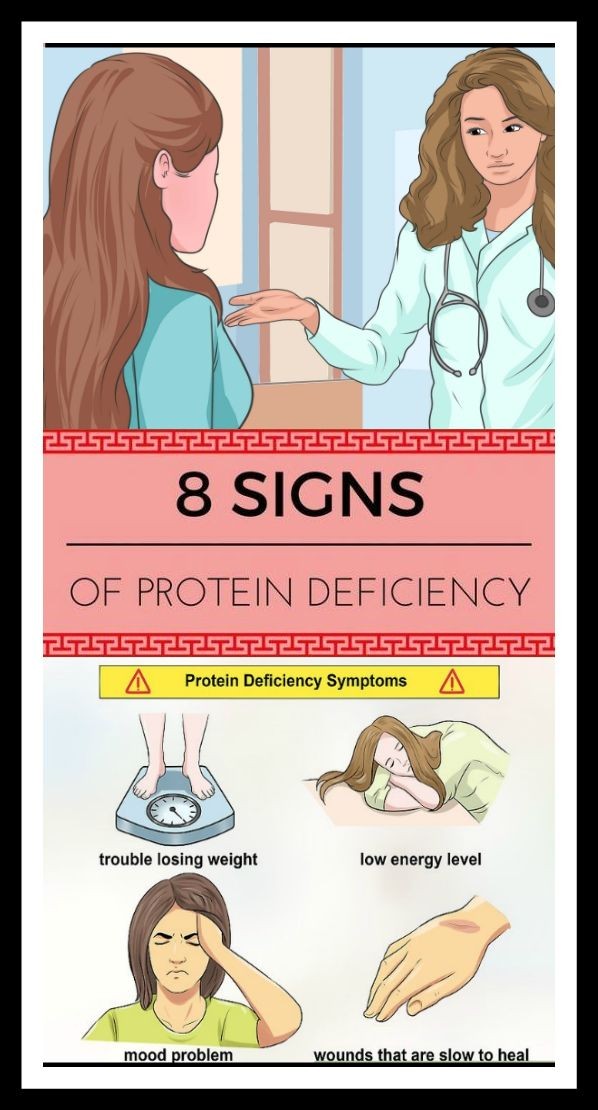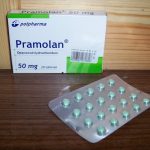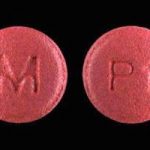
Contents
9 Symptoms of Protein Deficiency
Protein deficiency occurs when you don’t consume enough protein to meet your body’s needs. The symptoms of protein deficiency include hunger, blood sugar problems, low body temperature, among others.
You’re probably aware that you need to consume an adequate amount of macronutrients (carbohydrates, proteins) each day, but you may not know the correct amounts for your body type. Additionally, you may be unaware of how to recognize if you’re consuming too much or too little protein.
Although protein deficiencies are uncommon in developed countries, certain groups of people are still at risk. Read the following guide to learn how to identify the signs of protein deficiency, understand who is most likely to suffer from it, and adjust your diet to prevent it in the future.
Protein deficiency occurs when you don’t consume enough protein to meet your body’s needs. In developed countries with abundant food supply, it’s easier to consume excessive protein rather than insufficient amounts. However, individuals with eating disorders who purposely restrict their food intake are susceptible to nutrient deficiency and malnutrition.
Children and adults following a plant-based diet must pay close attention to their protein intake to avoid the risk of protein deficiency. Fortunately, obtaining enough protein while following a plant-based diet is relatively simple:
Protein should account for 10-30% of your daily caloric intake. For example, an adult consuming 2,000 calories per day should aim for a minimum of 50 grams and a maximum of 175 grams of protein. While athletes and older adults may require more protein to maintain good health, it’s important not to exceed the recommended amount. Excessive protein intake can have negative effects on the body.
9 Symptoms of Protein Deficiency
1. Hunger: Inadequate protein consumption triggers hunger signals. Combining protein with fiber in your diet can create a longer-lasting feeling of fullness.
2. Blood sugar problems: Insufficient protein intake often means consuming excessive carbohydrates. Balancing macronutrient intake is crucial to avoiding blood sugar fluctuations, which can be uncomfortable and even dangerous. Symptoms of low blood sugar (hypoglycemia) include shakiness, fatigue, sweating, and hunger. Symptoms of high blood sugar (hyperglycemia) include a dry mouth, rapid heartbeat, and frequent urination.
3. Low body temperature: Protein is important for maintaining a healthy metabolism. Protein deficiency can cause feelings of coldness, tiredness, and sluggishness. Severe deficiency can lead to hypothermia.
4. Brittle hair and nails: Protein is vital for the growth of hair, skin, nails, bones, and muscles. Insufficient protein intake can result in lackluster hair and nails.
5. Developmental delays: Protein is crucial for both physical and mental development. Studies on animals have shown that early protein intake may influence the development of neurodevelopmental conditions.
6. Fatigue after exercise: Protein aids in muscle development and recovery. Inadequate protein intake can lead to increased fatigue instead of energy after exercising.
7. Swelling (edema): Severe protein deficiency may cause swelling in the hands, feet, and abdomen. It’s important to note that milder deficiencies typically do not cause this symptom.
8. Abdominal bloating: Severe deficiency might cause thin and weak arms and legs, as well as bloating in the abdomen. Loss of appetite may also occur.
9. Mood swings: Adequate protein consumption supports efficient brain function. Amino acids found in protein help the brain produce neurotransmitters like dopamine and serotonin. If you have a mental health condition, it’s essential to ensure you’re consuming sufficient protein.
Who is at Risk of Protein Deficiency?
People who do not consume enough food, those who follow a plant-based diet without considering their protein needs, and individuals living in underdeveloped regions are most likely to suffer from protein deficiency.
Kwashiorkor and Marasmus are two potentially fatal protein deficiencies. Kwashiorkor is caused by insufficient protein intake and typically occurs in underdeveloped countries. Even with a constant food supply, it is possible to develop kwashiorkor over time if protein intake is inadequate. Marasmus refers to malnutrition of proteins, carbohydrates, and fats. Both conditions can lead to severe health issues, including muscle wasting, organ failure, and death if left untreated.
While it is unlikely for a healthy individual in a developed country to experience these conditions, individuals with eating disorders may be at risk of malnutrition resembling these deficiencies.
How is Protein Deficiency Treated?
Consume more high-protein foods
If your protein deficiency is due to a lack of protein in your diet, your doctor or nutritionist will likely provide you with a list of foods to incorporate into your meals. Consider the following protein-rich options, which promote satiety and contribute to muscle strength:
- Lean meats: Beef, lamb, chicken, and turkey contain around seven grams of protein per one-ounce serving.
- Seafood: Tuna, salmon, crab, and shrimp are healthy and readily available choices, providing six to seven grams of protein per one-ounce serving.
- Nuts: Almonds, peanuts, and walnuts contain approximately four to six grams of protein per one-fourth cup.
- Beans: Legumes like pinto, kidney, or black beans supply around six to eight grams of plant-based protein per one-half cup.
- Soy products: The protein content of soy foods can vary depending on the processing method. Tofu contains about three grams of protein per one-ounce serving, while dry-roasted edamame provides up to 13 grams of protein per one-ounce serving.
- Dairy products: Milk, cheese, and yogurt contain anywhere from five to eight grams of protein per serving. Greek yogurt has the highest amount with up to 18 grams of protein per five-ounce serving.
Supplement with protein powders
When increasing protein intake, it is advisable to prioritize high-protein foods before turning to supplements. Protein supplements should be made with healthy ingredients and should not contain excessive amounts of sugar or trans fats. Consuming a protein shake or bar at times when your protein intake is typically lower, such as in the morning, can be beneficial. It is essential to follow your doctor’s instructions if you have been diagnosed with protein deficiency. Incorporating healthy, protein-rich foods into your diet is recommended. Consult your doctor or nutritionist if you have any questions.
QUESTION
Sources:
- Cleveland Clinic: "Kwashiorkor," "Marasmus."
- Frontiers in Neuroscience: "Neurodevelopment and Cognitive Impairment in Parents and Progeny of Perinatal Dietary Protein Deficiency Models."
- Johns Hopkins Medicine: "Protein Content of Common Foods."
- Journal of Clinical Medicine: "Nutritional Management and Outcomes in Malnourished Medical Inpatients: Anorexia Nervosa."
- Mayo Clinic: "Diabetic coma," "Are you getting too much protein?"
- Mental Health Connecticut: "The Connection Between Protein and Your Mental Health."
- Nemours KidsHealth: "Vegetarian Diets."
- Piedmont Healthcare: "Why is protein important to your diet?"


